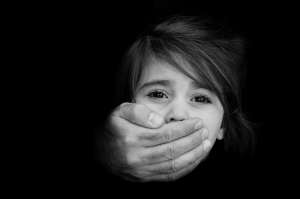Help! My child watched the news
When the violence broke out and the nation shuddered, little eyes were watching. When the politicians bickered on television, little ears were listening. When the COVID-19 pandemic came with wave after wave of bad news, little hearts were soaking it in.

As parents, we want our children to be informed about the world around them yet recognize that images and sounds from the news can have a deeply negative impact on them. And as Christian parents, we recognize all the more our responsibility to help guard the minds of our little ones. Violent or controversial imagery in media affects young people much differently, and more significantly, than adults. This is an increased risk right now as children are watching more media at home during the COVID-19 pandemic. A recent survey of parents showed a 500% increase in the number of kids who spend six hours or more per day watching screens.
In my training and work as a counselor and educator, I’ve studied tools for helping children interpret their world in ways that make sense and are constructive to their development. Images of violence and chaos make an impression on our kids, but we can help them process what they’re taking in and set it in the light of biblical truth. Here are five ways you can help your children navigate difficult news media:
- Help your kids feel safe. Parents can create a safe space for kids by letting them know they are loved no matter what, that they can ask questions about anything, that your family has a plan in case of emergencies, that there are things they can count on, and that you are there to help and support them in any situation. Children take their emotional cues from the adults in their lives and are acutely sensitive to your reactions. If you can keep your own emotions in control, be aware of how you’re speaking about things, and show them that you’re unafraid of difficult conversations, they will learn positive ways of dealing with events in their lives as well.
- Limit exposure to the news. This will vary with the age and cognitive development of the child, but there are some general guidelines that are helpful. You’ll need to decide what’s appropriate for your children to be exposed to and be ready to turn off the TV if necessary. We know that violent video game imagery shows increased activity in the brain regions associated with anxiety and emotional reaction, while simultaneously reducing activity in the frontal lobes associated with emotion regulation. Violent imagery in the news can have similar effects. Watch the news with your children so you can give explanations to help them understand what they’re hearing and seeing. Be aware that some children are more sensitive than others and will be more affected by difficult events and images they see and hear.
- Listen carefully to their questions. Often children will ask “safe” questions that mask deeper, underlying fears. They may be afraid that what they’re seeing on the news is going to happen to them. Remind them that the news tends to show unusual events, things that happen that are not normal and are often the worst things that happen because that’s more interesting to many people. You can ask thoughtful questions like, “What do you think made that person do that?” or “Why do you think that happened?”
- Give honest, brief answers. Tell the truth about what has happened, but don’t give children more information than they need or than they are interested in. Broad, general answers are often more helpful than including a lot of details. Find out if they have already heard about the event in school or from their friends and correct false information. Acknowledge their difficult feelings of fear, confusion, and sadness, and help them process those feelings by talking about them.
- Remind them of God’s presence, no matter what happens around them. Kids need to know that God will never leave them or give up on them! The Bible is full of stories about terrible things happening in the world, but it also reminds us over and over of God’s presence and comfort in the midst of hard times. Let your children see that you have faith in God’s promises and that you trust him—even when you’re hearing about bad news and are experiencing difficult feelings yourself. Pray together as a family about the things you see on the news, and continually assure your kids that even though bad things happen, God is never surprised and is in control.
Philippians 4:8 teaches that we should strive to meditate and think on whatever is true, noble, pure, lovely, and admirable. The threshold for balancing imagery and explanation is going to be different for every child, but our approach must be intentional. As parents, grandparents, and church leaders navigate this season, we must be ever more aware of what our children are seeing in the news and how they’ve been equipped to process it.
Margi McCombs, Ph.D., is the director of children and teen trauma healing for the Trauma Healing Institute at American Bible Society.



























